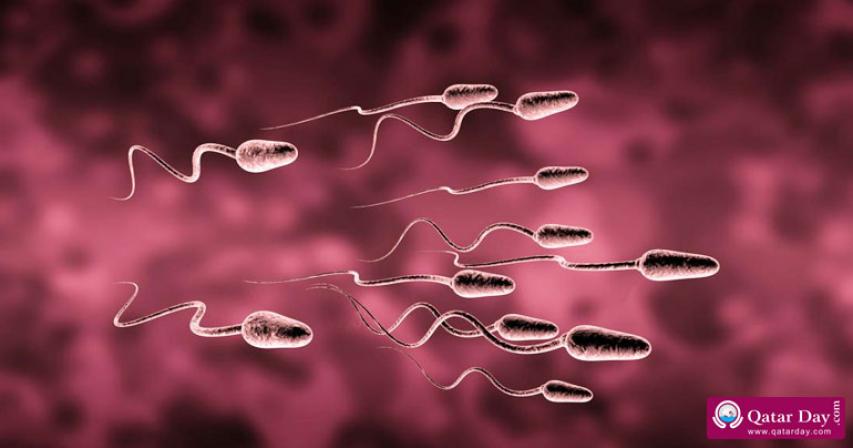Lifestyle Changes to Improve Sperm Count and Boost Fertility
- 5 years ago

When starting a family, the issue of fertility affects both women and men. For men, it’s as important as it is for women to adopt healthy lifestyles. This is, especially, if you’re suffering from oligospermia, otherwise known as low sperm count. There are tons of natural ways to tackle the condition without having to opt for surgical procedures. These solutions can help with spermatogenesis in as little as 3 months.
However, before making a change in lifestyle, take into consideration other crucial factors such as medical conditions and age. It is best to consult a fertility expert before changing your lifestyle.
Some of the dietary and lifestyle changes that can help improve fertility and enhance sperm count include:
1. Reducing Stress
Stress causes your body to release a stress hormone called Cortisol. High levels of it inhibit the production of testosterone. This adversely affects spermatogenesis as the sexual and stress hormones don’t mix.
2. Regular Exercise
Research has shown that men who are physically active have higher and better levels of testosterone compared to those that are inactive. Prolonged inactivity is a major cause of low sperm count in men. Exercise reduces anxiety and stress, further improving your fertility.
3. Reducing alcohol intake
According to research carried out at the University of Denmark, men who take over 40 units of alcohol per week are at risk of reducing their sperm count by up to 33%. In addition, they increase the chances of ruining their sperm morphology by up to 50%. Even taking as little as 25 units a week reduces your sperm count and affects the quality of sperm produced.
4. Taking Plenty of Nuts
Taking 2.5 ounces of walnuts, every day can improve the quantity and quality of your sperm. Researchers based in UCLA have carried out studies that show increased levels of fatty acids such as omega-3 in men who include nuts in their diet. This improves sperm vitality and mobility.
5. Losing some weight
A study that was carried out on 7360 men discovered that men with higher BMI had lower sperm concentration. Researchers measured sperm concentration, progressive motility, sperm morphology, and total sperm motility. Excessive fat had adverse effects on sperm morphology.
6. Taking a break
Disconnect from your smart devices from time to time. Don’t work with the laptop placed on your laps. In addition, reduce the amount of time you spend with your cell phone placed inside your pocket.
Anything that brings heat to your testicles has detrimental effects on sperm production. This includes hot tubs, regular saunas, a laptop that’s placed on your laps, and tight clothes.
Gadgets connected to Wi-Fi networks are also believed to exert electromagnetic radiation that has the potential of significantly damaging sperm DNA and morphology.
7. Taking some Vitamins
A study that was previously carried out in New Zealand found out that oxidative stresses on sperms can cause infertility in males. Prenatal vitamins are normally recommended for women, but the micronutrients present have great benefits for men.
Supplements containing folic acid and Vitamins E and C have antioxidants that help reduce oxidative stresses on sperms. The mineral Zinc also plays a huge role in maintaining the integrity of the sperm membrane and sperm cell stability. Infertile men have lower levels of Zinc in their seminal plasma. Zinc not only enhances the quality of sperm but also improves testosterone levels.
8. D-Aspartic Acid (D-AA) )Supplements
The D-aspartic acid is an amino acid that resides in the testicles, sperm cells, and semen. Infertile men have lower levels of D-AA. Taking up to 2.66 grams every day has been observed to increase testosterone in infertile men by up to 60% in a period of 3 months. It also enhances sperm motility by between 60-100%.
D-AA, however, has only been observed to improve sperm parameters in those struggling with infertility, and not in healthy men.
9. Avoiding Soy
Soy foods contain high amounts of isoflavones, a type of phytoestrogen that depicts the characteristics of the female hormone, estrogen. This can adversely affect sperm count as it decreases sperm concentration.
10. Taking Withania Somnifera
Withania Somnifera (Ashwagandha) is a herb originating from the Ayurvedic system that’s practiced in India. It has been used for a long time to solve male infertility. According to research carried out on the herb, consuming the roots has the potential of increasing sperm count by up to 167% and semen volume by up to 503% in men suffering from oligospermia. These results can be achieved in a period of 90 days.
Conclusion
1 in every 6 cases of infertility in couples is due to low sperm count. The testes in males are normally unable to make enough sperms to facilitate pregnancy. In other cases, transport issues and blockages make pregnancy impossible.
What is not certain is how many of these cases can be solved by simply adopting better lifestyle habits. Before opting for solutions such as ICSI (intracytoplasmic sperm injection), try reducing stress, giving up a sedentary lifestyle, and improving your diet for better sperm parameters.
Comments